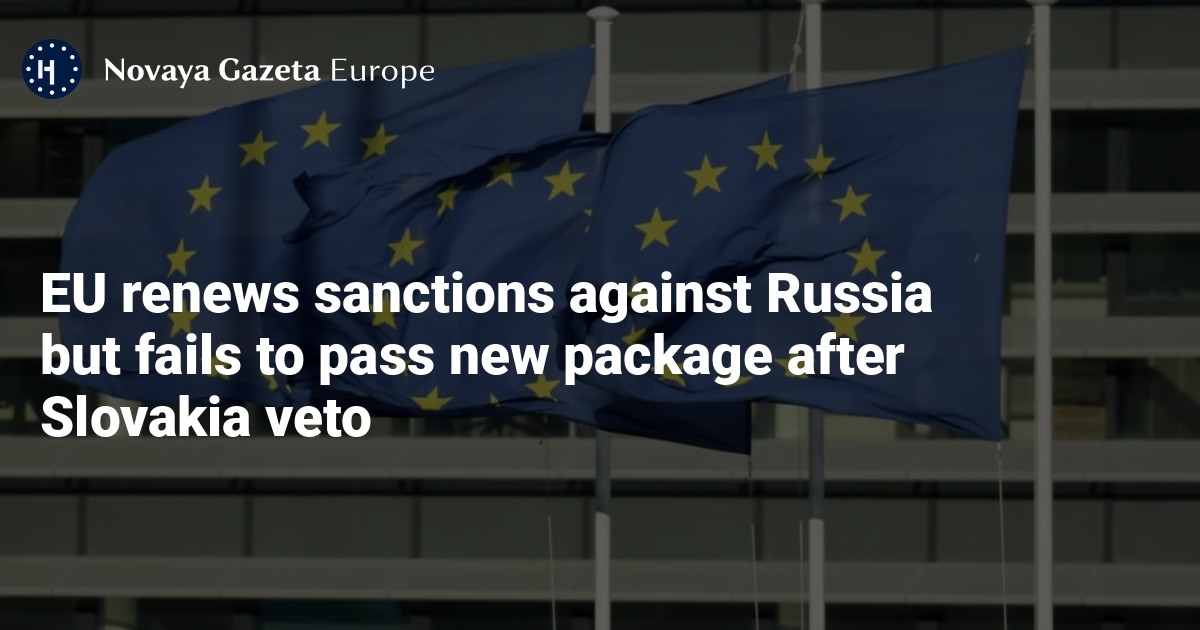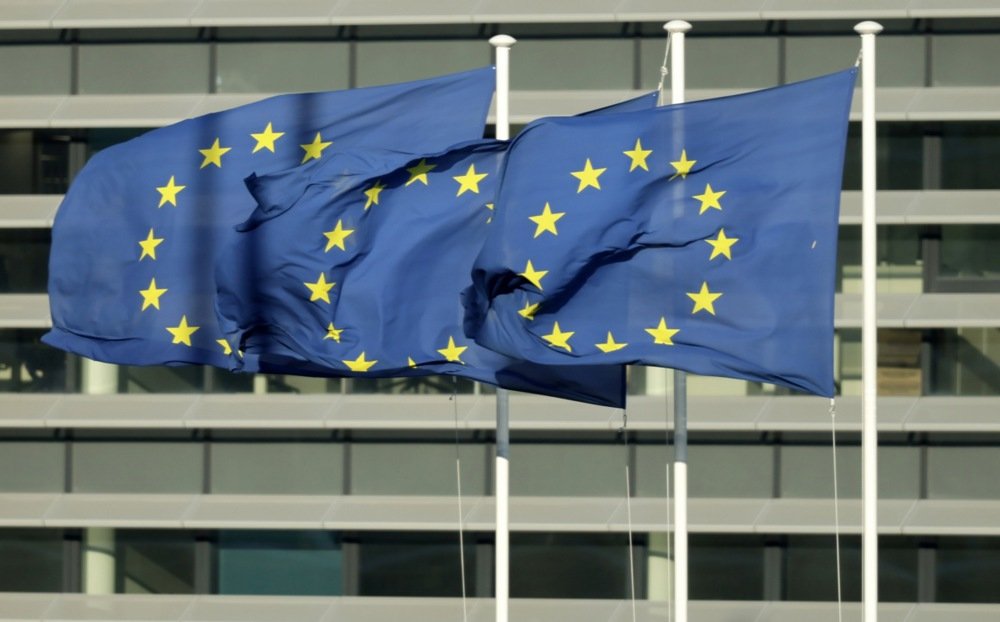




Flags of the European Union in front of a building at the European Parliament in Strasbourg, France, 2 April 2025. Photo: EPA-EFE/RONALD WITTEK
EU leaders gathered in Brussels have agreed to renew existing sanctions against Russia for another six months, Reuters reported on Thursday, though they failed to pass a new raft of sanctions after Slovakia’s Prime Minister Robert Fico made clear he would veto such a proposal.
The decision means that the proposed 18th package of sanctions, which would further target Russia’s energy and finance sector and the so-called “shadow fleet” of tankers used to bypass the G7 price cap on Russian oil exports, will have to be agreed upon at a later date.
On Thursday, Fico said he would not agree to a new sanctions package until Slovak concerns over gas supplies are resolved. According to Reuters, Fico believes that further sanctions against Russia will lead to supply issues and legal issues for Slovakia concerning its existing long-term contract with Russian gas company Gazprom.
In mid-June, the European Commission unveiled a legislative proposal, according to which EU countries would be required to phase out the import of Russian energy by 2027, part of Brussels’ RePowerEU plan aimed at ending the EU’s dependency on Russian fossil fuels.
“Russia has repeatedly attempted to blackmail us by weaponising its energy supplies. We have taken clear steps to turn off the tap and end the era of Russian fossil fuels in Europe for good,” Ursula von der Leyen, President of the European Commission, said when introducing the initiative on 17 June.
Commenting on Slovakia’s opposition, Polish Minister for European Affairs Adam Szłapka said at the summit that he hoped Bratislava’s support could be secured:
“As with the previous sanction packages, I am optimistic here; we are working on it,” he said. “I hope that it will be possible to close it by the end of Poland’s [EU] presidency, and as we know, there are four days left.”
Since Russia’s full-scale invasion of Ukraine in 2022, the EU has imposed punitive sanctions against over 2,400 Russian companies, politicians, military figures, and business people.
The EU’s sanctions must be renewed every six months and require unanimous agreement from all 27 member states. The EU’s existing sanctions were set to expire on 31 July. With the latest deal, they will now remain in effect until 31 December.
Also on Thursday, the European Council, which is holding a special summit in Brussels this week, failed to adopt a unanimous statement of support for Ukraine’s accession to the EU after Hungary refused to endorse the measure.
Hungary’s Prime Minister Viktor Orbán, who organised a widely criticised opinion poll in his country in which 95% of respondents rejected the prospect of Ukraine’s EU accession, says he will continue to oppose the process.
“The problem is the war; if we were to integrate Ukraine into the EU, we would integrate the war; we wouldn’t want to be in the same community as a country at war,” Orbán said ahead of the summit.
